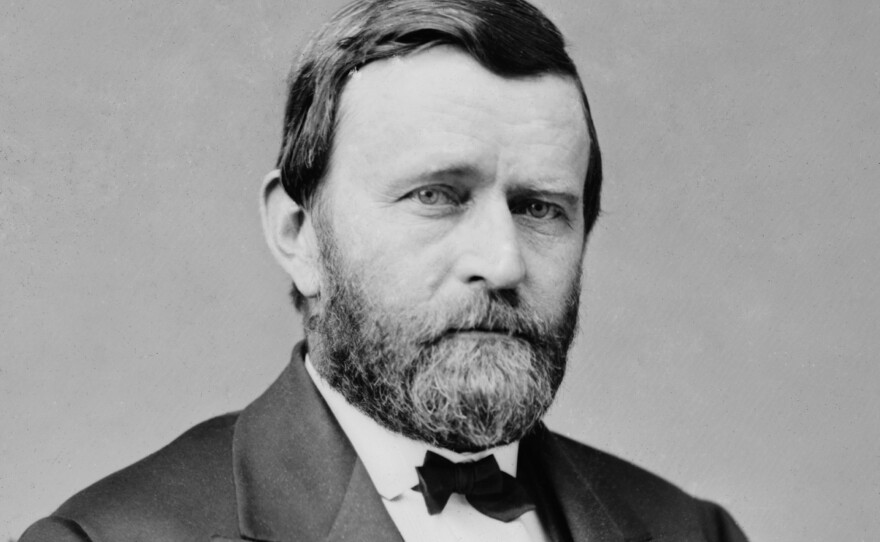Over the past six decades, dozens of scholarly surveys have attempted to rank the terms of U.S presidents. Beginning with Arthur Schlesinger’s poll in Life magazine in 1948, Ulysses S. Grant shows up near the bottom of dozens of lists well into the early 2000s.
Since a 2005 Wall Street Journal poll, though, Grant’s legacy has gradually improved over the last decade.
“Except for Lincoln, and FDR perhaps, Grant shouldered more grave responsibilities than any chief executive in our nation’s history,” says Joan Waugh, a UCLA historian and the author of U.S. Grant: American Hero, American Myth. She spoke March 10 at the University of Oklahoma’s “Teach-In on the Civil War.”
The Civil War general served two terms as president from 1869-1877, and followed arguably one of the worst U.S. presidents, the impeached Andrew Johnson. Grant presided over almost the entire period of Reconstruction, as the war-torn southern states rejoined the Union and rebuilt an economy destroyed by the abolition of slavery.
Waugh argues that by the 1920s Grant’s reputation was synonymous with brutal warfare, alcoholism and overwhelming corruption and incompetence in office due to a constant drumbeat of criticism from Southern authors and historians.

“Since the end of the Civil War, ex-Confederates were busy writing history,” Waugh says. “It was not enough to idolize Robert E. Lee. U.S. Grant’s reputation and the meaning of his cause, the Union cause, preservation of the democratic republic, and emancipation had to be destroyed, or at least cut down to size.”
The so-called Lost Cause literary movement gained momentum throughout Reconstruction, as white Southerners tried to reconcile their defeat and end of their traditionalist society as being overwhelmed by sheer numbers and horrific tactics, rather than Grant’s superior military intellect. The term first appeared in Edward Pollard’s 1866 book The Lost Cause: A New Southern History of the War of the Confederates.
“’Grant,’ Pollard wrote, ‘was one of the most remarkable accidents of the war. A man without any marked ability, certainly without fortune, without genius, without influence,’” Waugh says. “If they could not defeat Grant on the battlefield, at least they could defeat him in print.”
For decades generations of leading historians at major American universities like Columbia and Yale wrote the history textbooks used in American high schools and colleges, and continued the Lost Cause narrative by portraying Grant as a cold-blooded killer during the Civil War and a dictator during Reconstruction.
But over the past 30 years, the Reconstruction narrative has been rewritten, and since the 1990s, Grant’s reputation began to change as historians started to closely study his published papers. Waugh says Grant supported laws upholding civil rights, helped ensure the passing of the 15th Amendment, generously gave amnesty to former Confederates, and peacefully settled grievances with England.
“Too many historians have magnified his flaws and underestimated his strengths, creating a distorted record of his military and political career,” Waugh says. “If justice as well as scholarship is served, Grant’s presidential reputation, which is already rising, might even be higher. He may not make the 'Greatest' list, but he will be called, as he was, an essential president.”
--------------------------------
KGOU relies on voluntary contributions from readers and listeners to further its mission of public service to Oklahoma and beyond. To contribute to our efforts, make your donation online, or contact our Membership department.








